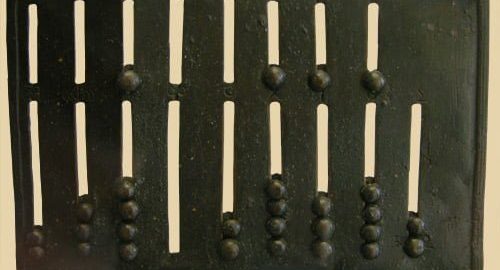In ancient Rome, students learned the multiplication table by repeating after the teacher the words: bis bina quattuor – decantare, which means “two times two, four – speak”.
The teacher of counting on fingers or pebbles was called calculator or librarius. Calculator also acted as an accountant in the patrician house. In his work, he used equipment that was easy to carry and could keep the result of the calculations made – the so-called calculi which is the abacus.
Its development was the famous Late Roman abacus, which allowed first-time engineers, merchants and tax collectors to take their own “calculator” with them and speed up operations considerably.







